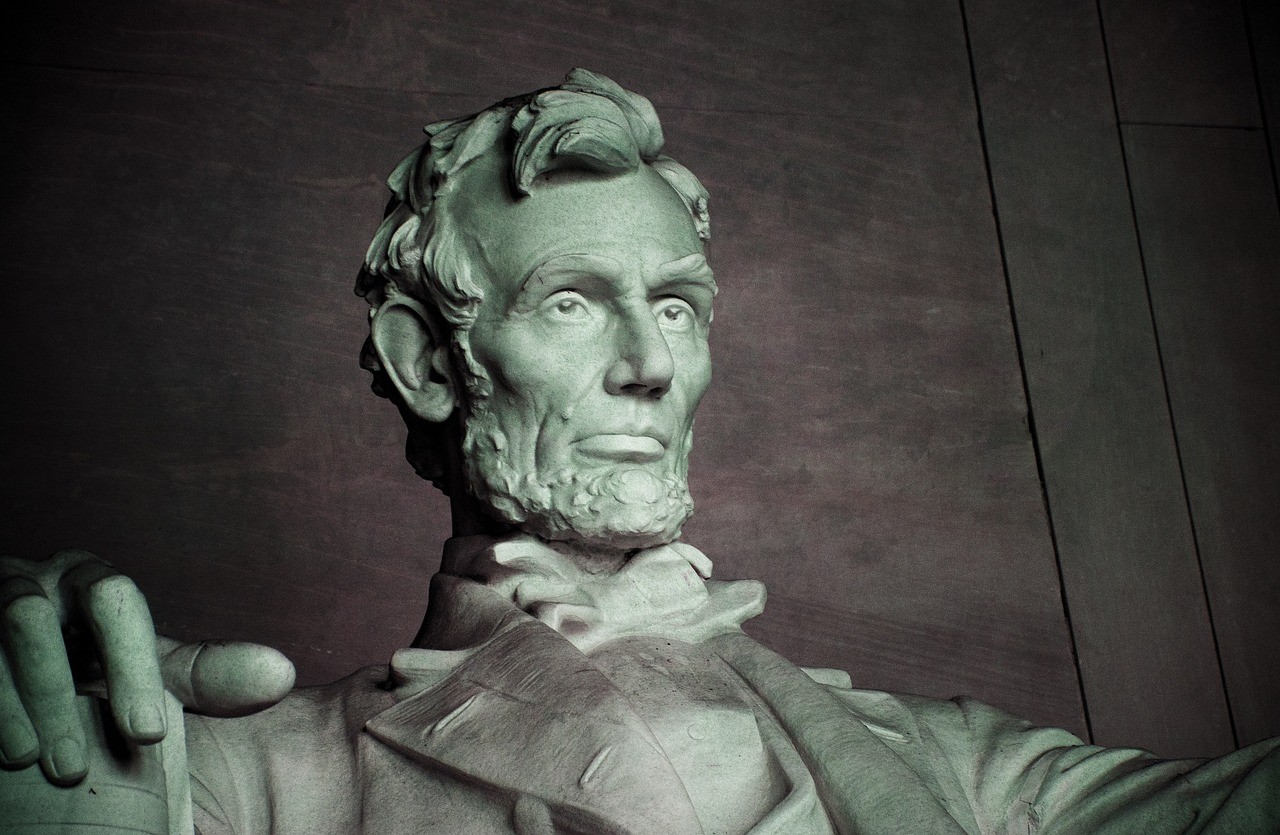
Abraham Lincoln was America’s first Republican president, who “was almost single-mindedly devoted to an economic agenda that Henry Clay labeled ‘the American System’ “. Throughout his career, Lincoln supported “protectionist tariffs, taxpayer subsidies for railroads and other corporations (‘internal improvements’), and the nationalization of the money supply to help pay for the subsidies”. This is the conclusion of Thomas J. DiLorenzo’s comprehensive analysis of Abraham Lincoln’s presidency and political career, The Real Lincoln: A New Look at Abraham Lincoln, His Agenda, and an Unnecessary War, and a must read for anyone interested in getting the facts about America’s “greatest president”.
In more than 300 pages including extensive endnotes, Professor DiLorenzo systematically presents the facts and draws the inevitable conclusion–Abraham Lincoln’s presidency changed forever the balance of power between the federal government and the states. In fact, DiLorenzo makes the persuasive case that Lincoln effectively engineered a coup, replacing the Old Republic’s constitutional safeguards with the beginnings of the statist tradition that has been cemented on the American people for the past 140 years.
Professor DiLorenzo makes the case against Lincoln in ten chapters, showing how the “Great Emancipator’ was opposed to racial equality, pointing out how Illinois, the land of Lincoln, as well as other northern states, amended their constitutions to prohibit blacks from emigrating into their states. In chapter 3 DiLorenzo asks the most important question about Lincoln: Why couldn’t Lincoln end slavery peacefully as was the case in dozens of other nations between 1800 and 1860? Instead, the War Between the States tally, 620,000 deaths, tens of thousands maimed for life, approximately 40% of the economy destroyed, and a massive violation of the people’s fundamental liberties. In short, Lincoln failed as a national leader to end peacefully the subjugation of one group of individuals.
Lincoln has been labeled a ” benevolent dictator” by his defenders. “Honest Abe’s” suspension of habeas corpus, “imprisoning thousand of Northern citizens without trial for merely opposing his policies: censoring all telegraph communication and imprisoning dozens of opposition newspaper publishers; nationalizing the railroads; using Federal troops to interfere with elections; confiscation firearms; and deporting an opposition member of Congress Clement L. Vallandigham, after he opposed Lincoln’s income tax proposal during a Democratic party rally in Ohio”, do not phase Lincoln’s supporters. Instead, many of Lincoln’s idolizers applaud him for showing “restraint”.
While Lincoln was trampling on the rights of Americans to implement his cherished American System, DiLorenzo reveals (Chapter 7) that the benevolent “Lincoln administration established another ominous precedent by deciding to abandon international law and the accepted moral code of civilized societies and wage war on civilians”.
In addition, the period known as Reconstruction (1865-1877), according to DiLorenzo, saw the Republican Party plunder the South “by instituting puppet governments that constantly raised taxes but provided few public benefits. Much of the money was simply stolen by Republican Party activists and their business supporters”.
After the war, “many of the same generals who had guided the North war effort (particularly Grant, Sherman and Sheridan)”…eradicated the Plains Indians “to make way for the government subsidized-transcontinental railroads”. The road to empire was begun.
The legacy of Lincoln can be summed up in one phrase– “the military-industrial complex, some ninety years before President Eisenhower coined the phrase”.
Lincoln may have “saved the union” but he destroyed the very liberties the founding fathers gave their lives, fortunes and sacred honor to establish as well as the notion that the nation was a voluntary association of states.
If the first GOP president was a through and through statist who put America on a course that gave us the welfare -warfare state in the 20th century, George W. Bush’s expansion of the welfare-warfare state in the 21st century may usher in a groundswell of grassroots opposition to the Federal leviathan.
President Bush’s policies, except for the tax cuts, advance the Democrats’ agenda of more spending on education and health care, and protectionism. The federal budget deficit is exploding, and is expected to reach nearly $900 billion this year and next. The Federal Reserve continues to inflate the money supply at unprecedented rates. The potential for massive violation of civil liberties under the Patriot Act poses a real threat to the American people.
There is “bipartisan” support for growing the military-industrial complex and “nation building”. And, the Bush administration may have lied us into war in Iraq.
If current trends continue, the Bush administration will be blamed–and rightfully so- for another giant leap in statism. Congressional Republicans have an obligation to reverse this trend. If they don’t, the Bush administration’s policies may trigger a massive opposition to the welfare-warfare state that could lead to the demise of the GOP and the resurrection of a real major party that will return America once again to the policies of the Old Republic–limited government, sound money, free trade, civil liberties, and a noninterventionist foreign policy.
“Published originally at EtherZone.com : republication allowed with this notice and hyperlink intact.”